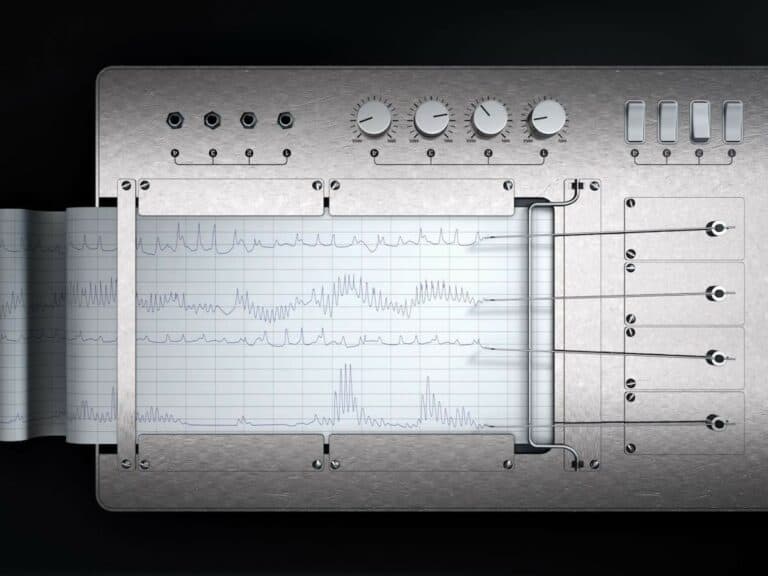Does Crying Affect a Polygraph Test?
Being accused of something you didn’t do or relieving a traumatic experience can cause you to cry your eyes out. But that’s okay. According to Harvard Medical School research, crying helps ease both physical and emotional pain. But should you hold back those tears while you are tethered to a polygraph machine for fear that it might affect the result?
Crying during a polygraph exam may cause the result to be inconclusive or a false positive. That’s because it affects blood pressure, heart rate and respiratory activity, all of which are monitored by the lie detector machine. Crying can also keep a person from being still, which can mess up physiologic readings.
Emotional and about to take a polygraph test anytime soon? Don’t stop reading now!
In this post, I will discuss things that have something to do with crying while undergoing a lie detector test. Especially if you want the examination to go without a hitch, you will learn that it’s a good idea to shed tears either before your polygraph test or after the question and answer portion, during the post-test phase.

Staying Still
There are many things to remember before and during a polygraph examination. Get a good night’s sleep. Don’t take alcohol or a tranquilizer. Refrain from overthinking the questions. Don’t provide more information than necessary. Because of this, it’s no wonder why many people are anxious about having the test.
Keeping still — this is another very important thing each and every polygraph examinee needs to remember.
During a lie detector test, all sorts of sensors are attached to the subject’s body. For instance, a blood pressure cuff is wrapped around the upper arm. A pair of galvanometers are attached to the fingers.
A polygraph machine can have up to 6 sensors, depending on the model. No matter the number of sensors, one thing remains true: every sensor is a major role player in a polygraph exam. And each sensor may be kept from carrying out its designated job if the examinee is moving unnecessarily.
Whether sobbing or bawling, it’s not unlikely for a crying individual to keep the polygraph machine from obtaining the most accurate of readings. And this is why it’s very much possible that the examiner will discontinue the test.
Before the actual question and answer portion of a polygraph test take place, the pre-test phase happens. The person who is administering the examination will not only introduce the subject to the test and the polygraph instrument but also be provided with some do’s and don’ts during the main part of the examination.
And one of the things he or she will instruct is for the examinee to try to remain still at all times.
Otherwise, unnecessary movements can keep the various sensors of a polygraph machine from picking up the vitals correctly. It’s for the same reason why a doctor will tell you to keep still when he or she is taking your blood pressure, heart rate and respiratory rate in the office, clinic or hospital.
Elevated Physiologic Responses
One of the things that make crying beneficial is that it helps to lower the blood pressure, heart rate and the levels of stress hormones in the bloodstream. Especially during a traumatic or depressing event, shedding some tears can help release some of the individual’s physical and emotional burden.
The positive changes in various physiological responses, however, happen after crying, not during.
As a matter of fact, your blood pressure, heart rate and respiratory activity may increase while you are crying. And it’s exactly because of this why it’s something that can affect a lie detector test — with elevated vitals, it’s very much possible for you to appear guilty even if you are 100% innocent.
Shortness of breath is something that you may experience when crying. And when you’re short of breath, you tend to hyperventilate, which is characterized by rapid, shallow breaths. The problem with hyperventilating is that it can leave you feeling even more short of breath, thus causing you to hyperventilate even more.
Health experts say that hyperventilation activates the sympathetic nervous system, which basically triggers the fight-or-flight response. Needless to say, it increases blood pressure and heart rate.
Sweating — it’s one more thing that can result from hyperventilation.
The more intense and vigorous the crying, the more dramatic the physiological changes are. This means that the readings of the lie detector machine are likely to be through the roof. If the polygraph examiner weren’t in the room, the chart would easily suggest that the subject of the test was lying.
Since an experienced examiner knows very well that crying can affect a polygraph test, he or she will wait for the examinee to calm down before starting or resuming the exam.
Read Also: 9 Types of People Who Should Not Take a Polygraph Test
Countermeasures
Because of the impact crying has on the various physiological processes, many of which are what a lie detector machine monitors and records, some people may deliberately use it to influence the result.
Online, there is never a shortage of articles on how to beat a polygraph test.
It goes without saying that no guilty examinee wants to fail the examination. If you think that only deceitful persons would like to beat a lie detector exam, think again — many innocent people try to beat it, too. That’s because, in some instances, completely truthful examinees fail a polygraph test, which isn’t entirely infallible.
Crying when being asked irrelevant questions, which are questions that are designed to provoke no stress or emotion in the examinee, can cause an elevation in the vitals similar to when the person is attempting to deceive the examinee.
Hushing when being asked control or relevant questions, meanwhile, allows the examinee to pull the stunt.
If the ultimate goal is to beat a lie detector test exam, you should influence your different physiological processes to be pretty much the same for when you are being truthful and for when you are being deceitful — things should be higher than normal when you are telling the truth and things should be closer to normal when you are telling a lie.
Just about anything that you can deliberately do in order to influence or contaminate your polygraph exam is referred to as a countermeasure. Some common examples of countermeasures are solving a difficult math problem or biting the tongue when being asked irrelevant questions and thinking of one’s happy place when being asked crime-related questions.
In order to attain success, an examiner must stick to discreet countermeasures.
Crying is certainly not one of them. As a matter of fact, at the first sign of crying, it’s not unlikely for the examiner to tell you to relax and at the same time bring the examination to a halt.
Just Before You Get Strapped to a Polygraph Machine
Crying can definitely affect a polygraph test in that it can impact the readings the lie detector instrument picks up and records. Not only will it affect your various physiologic processes such as blood pressure, heart rate and respiratory activity but also keep the polygraph machine’s sensors from doing their job accurately due to unnecessary movements.
But it’s very much unlikely that crying will have something to do with the result of the examination because you can rest assured that the polygraph examiner will stop the test as soon as you start crying.
While it’s good to cry, it’s not during a lie detector test when you should leverage the perks it comes with.
Related Questions
Can you pass a lie detector test by staying calm during the exam?
A polygraph examiner can determine whether or not the examinee is truthful by comparing his or her physiologic readings when answering various questions. Staying calm while taking the test can prevent spikes in the readings, which can then fend off a result of deception indicated.
Can you retake a polygraph exam if you are innocent and you failed it?
If the examinee claims to be innocent despite failing the lie detector test, which means that the result is a false positive, he or she should be given the opportunity to retake the examination. In most instances, retaking a polygraph test yields a more accurate result.
Read Next: Can You Beat a Polygraph Test?






